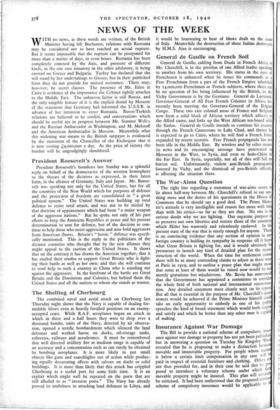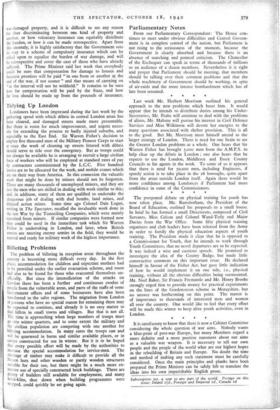Insurance Against War Damage
The Bill to provide a national scheme of compulsory insur ance against war damage to property has not yet been pubhsh, but in answering a question on Tuesday Sir Kingsley W revealed that he is proposing to make a distinction betwe movable and immovable property. For people whose incom is below a certain limit compensation in any case will paid in respect of essential furniture and clothing. Others al not thus provided for, and in their case he said that he pr posed to introduce a voluntary scheme under which th .
scheme of compulsory insurance would be applicable to p1 n ccrtat. movable property might be insured. This be criticised. It had been understood that the proposed nation• war-damaged property, and it is difficult to see any reason for thus discriminating between one kind of property and another, or how voluntary insurance can equitably distribute the burden, or how it can be made retrospective. Apart from this anomaly, it is highly satisfactory that the Government sees its way to a scheme of compulsory insurance which can be relied upon to equalise the burden of war damage, and will be retrospective and cover the case of those who have already suffered. The Prime Minister said last week that everybody could be sure that compensation for damage to houses and business premises will be paid " in one form or another at the end of the war, if not sooner " and that means of carrying on "in the interval will not be withheld." It remains to be seen how far compensation will be paid by the State, and how far loss should be made up from the proceeds of insurance.































 Previous page
Previous page